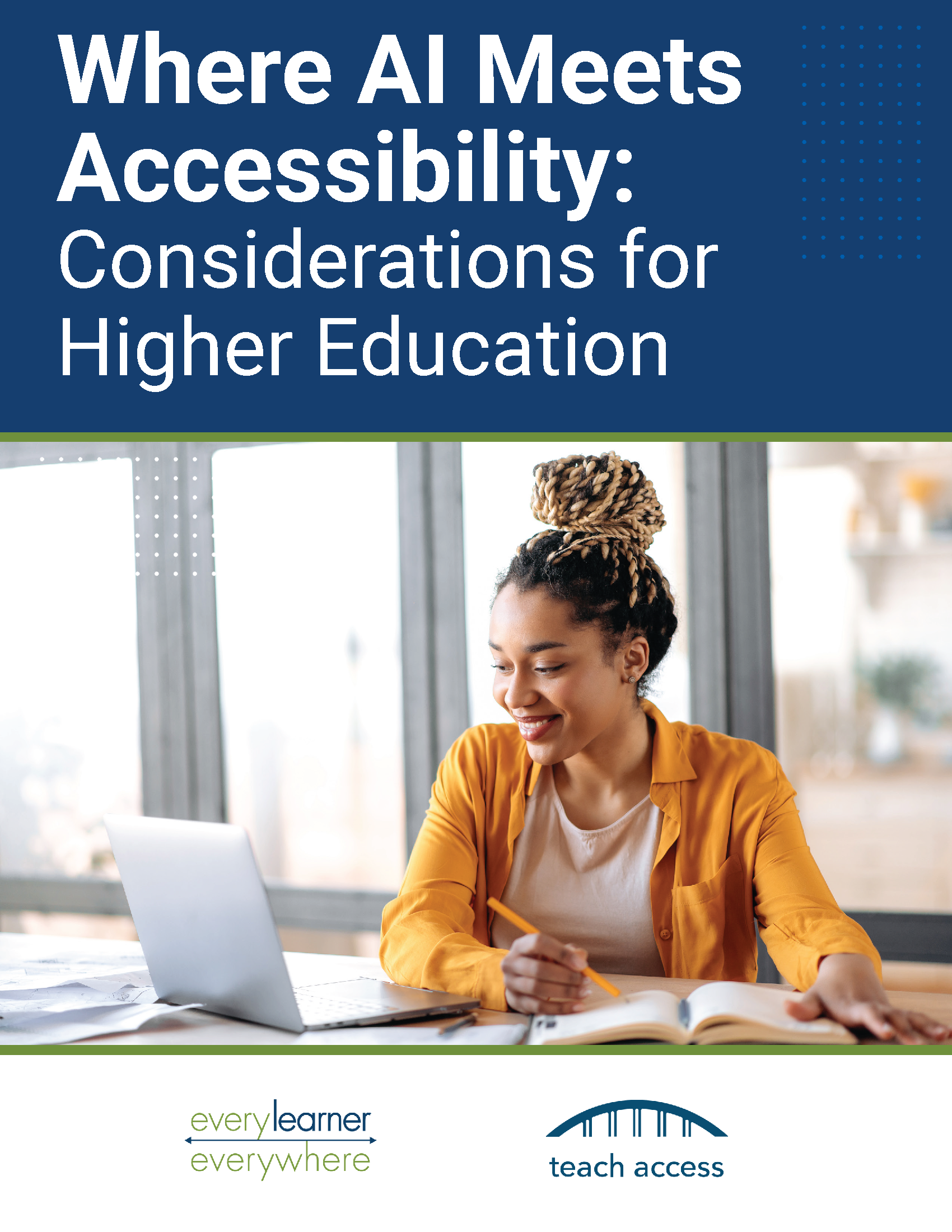
As AI becomes increasingly embedded into educational settings and practices, it offers both opportunities and challenges. This comprehensive resource will help navigate both aspects — demonstrating how AI can help overcome technology barriers, including various recommendations for integrating accessible AI across different areas of higher education.
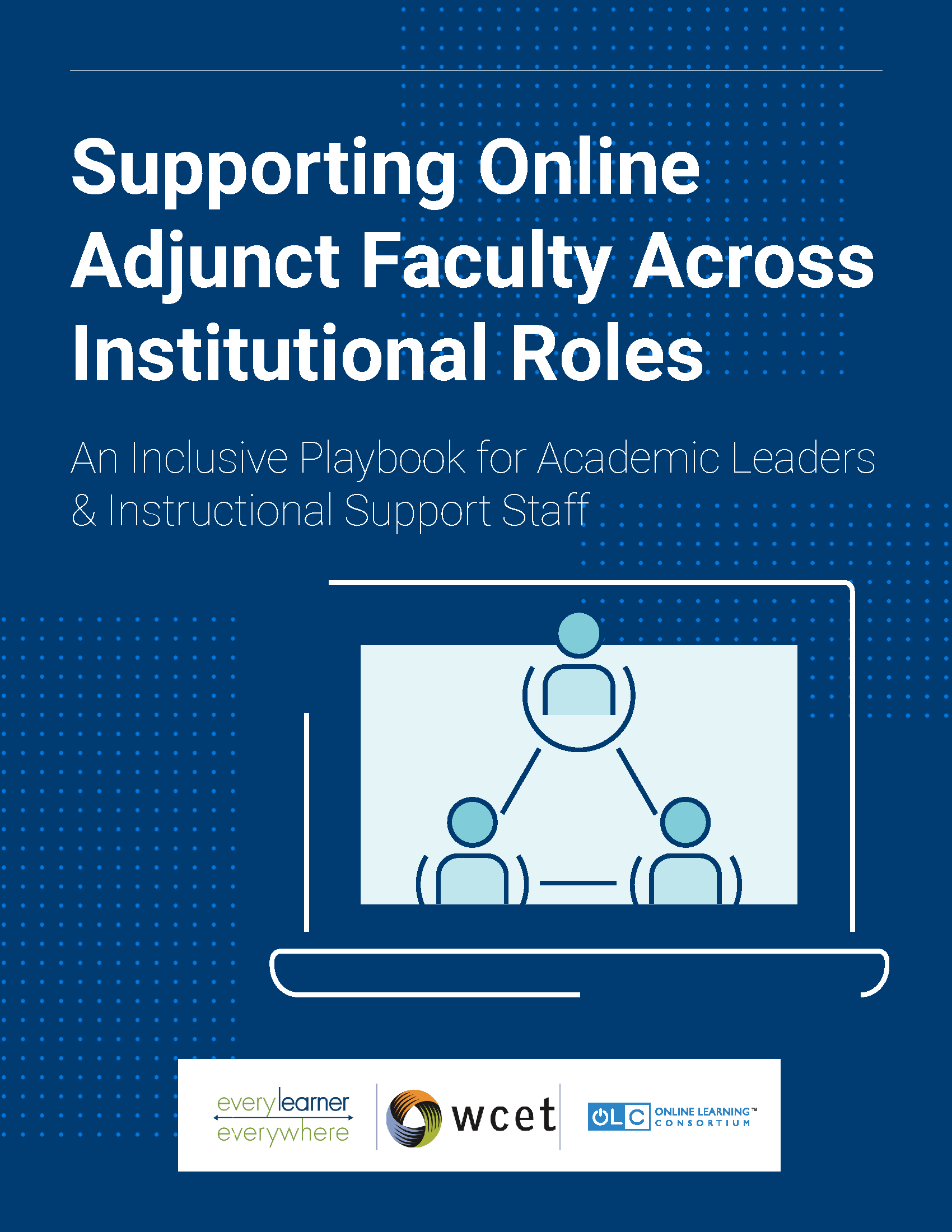
This playbook presents six concrete strategies for academic leaders, college-level leaders, and instructional design staff to adopt now to better support their online adjunct faculty and the community of students and learners in their classrooms.
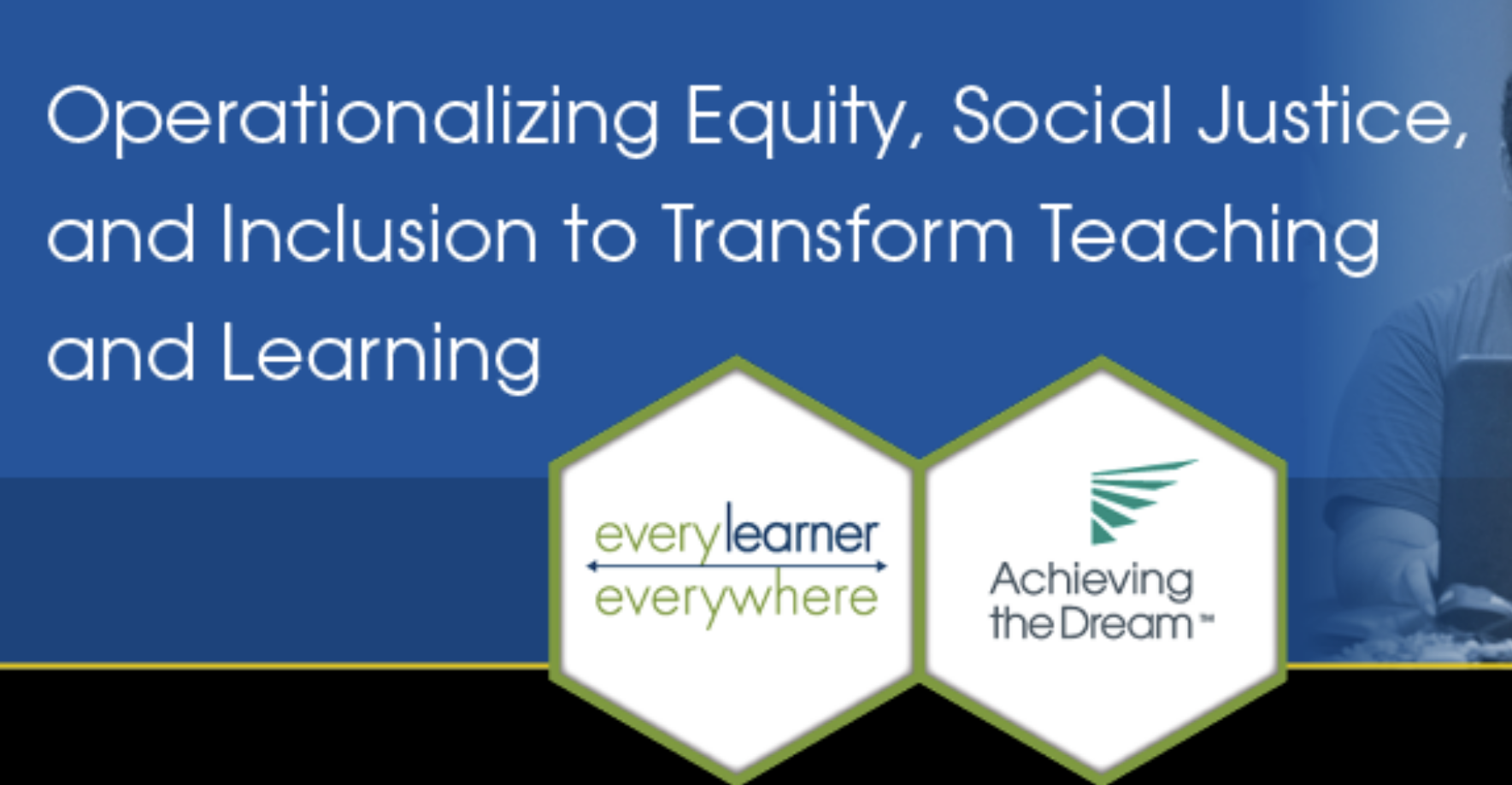
In this webinar, participants engage in dialogue and discourse with panelists about co-creating environments that support and humanize students’ academic experiences while affirming their strengths and potential in the classroom.
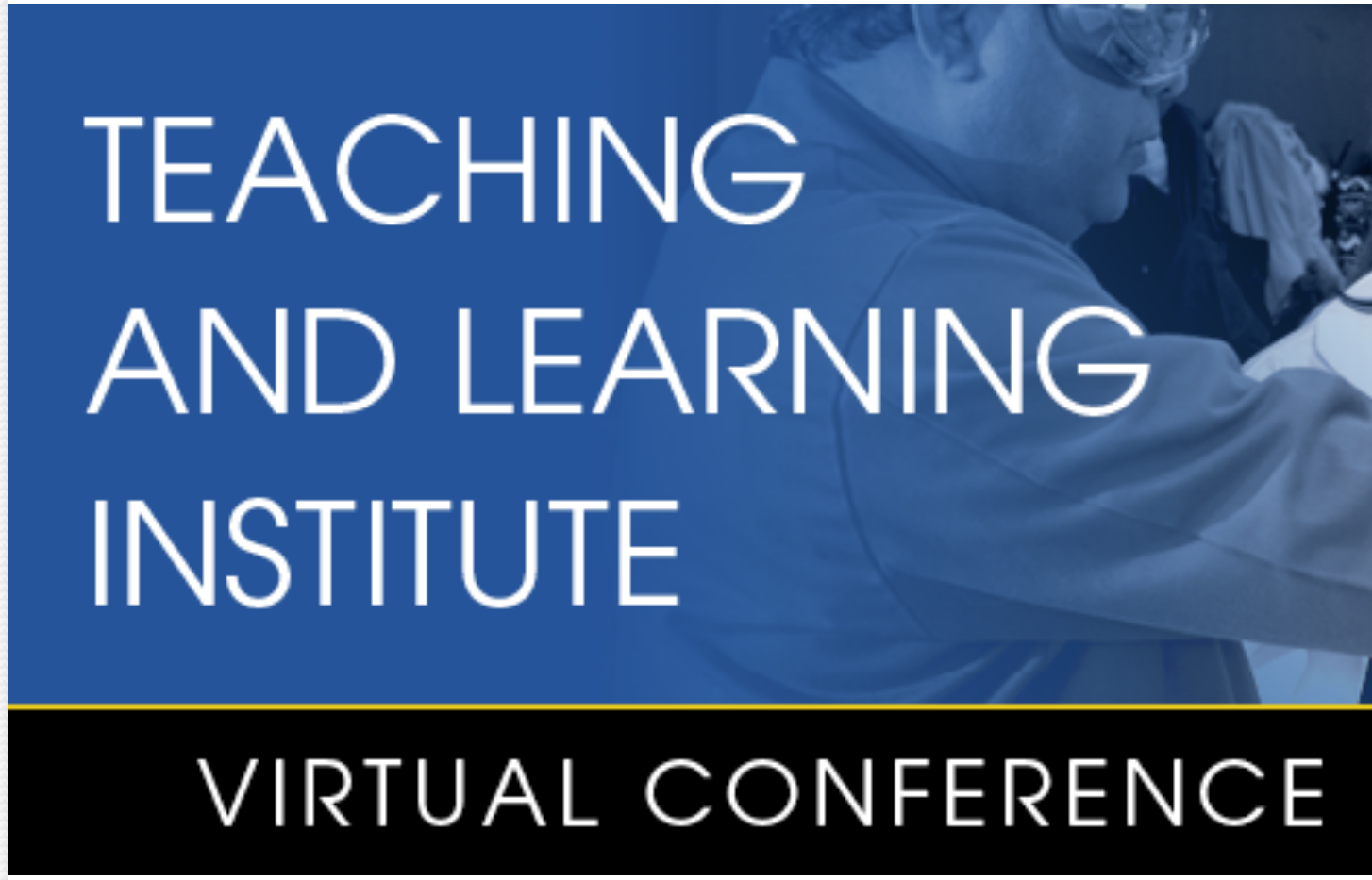
Three students who are ATD fellows share their first-hand accounts of culturally responsive teaching practices and the impact on their learning experiences.

This workshop provides examples of successful innovative and digital assessment approaches that center students and allow for authentic and culturally responsive measurement of student learning.
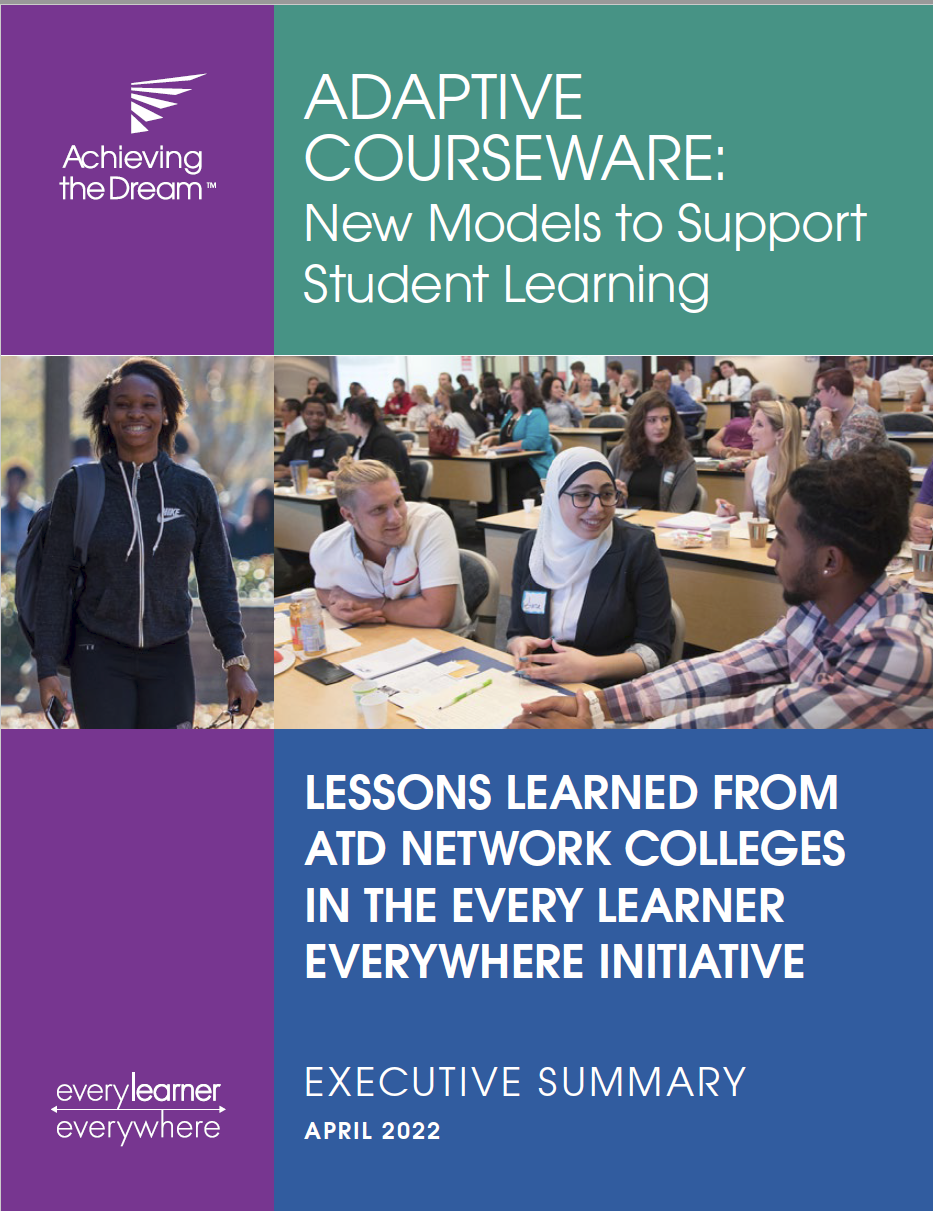
This report is an executive summary of the findingins following the implementation of digital learning tools at seven community colleges.
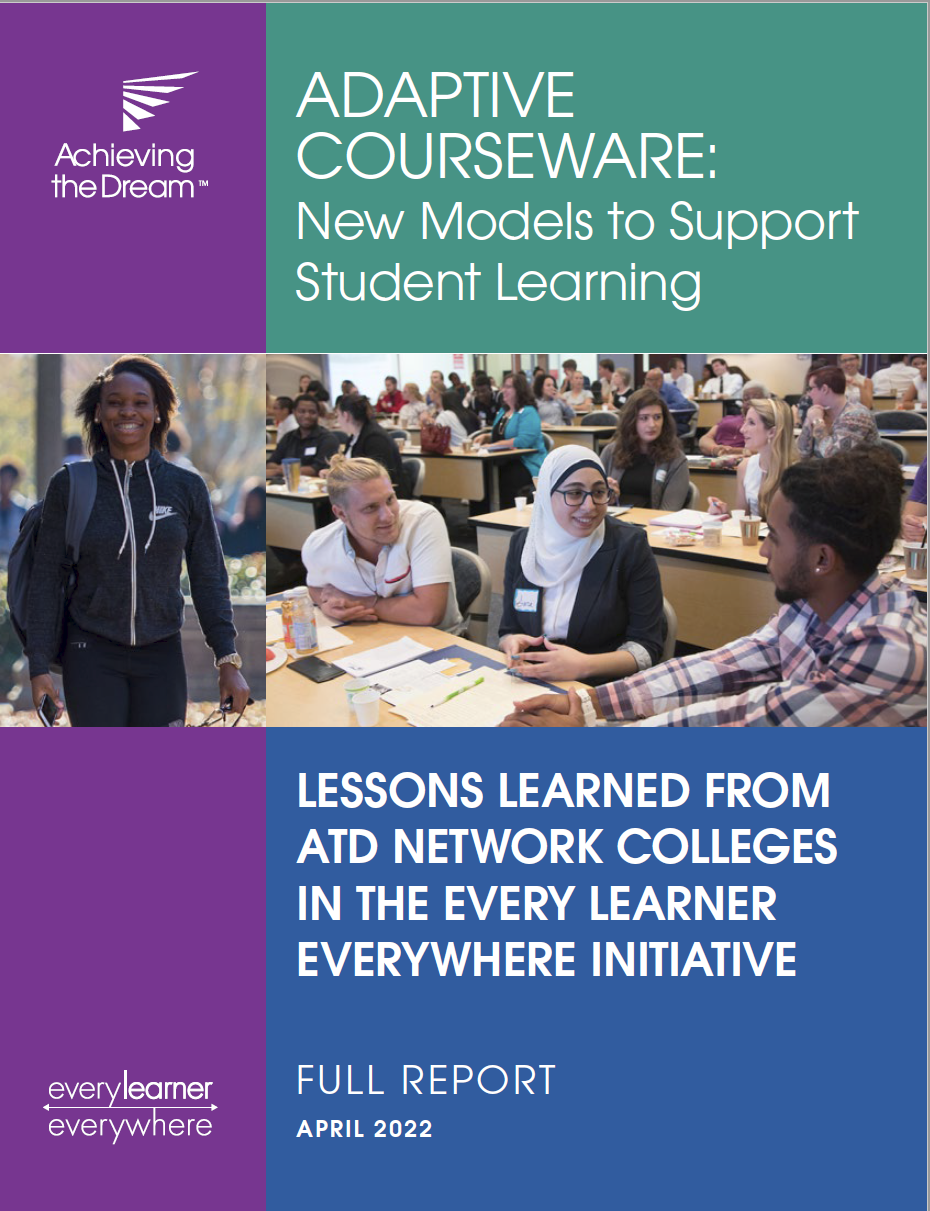
Full report of digital learning adoption in seven community colleges in the ATD network.
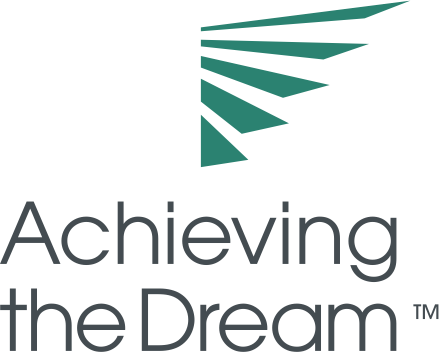
Instructional designers, technologists, and faculty developers practice consultation approaches by exploring a case study and applying course design strategies.

Align course instruction with adaptive content, analyze data points on an adaptive courseware dashboard and effectively onboard students.
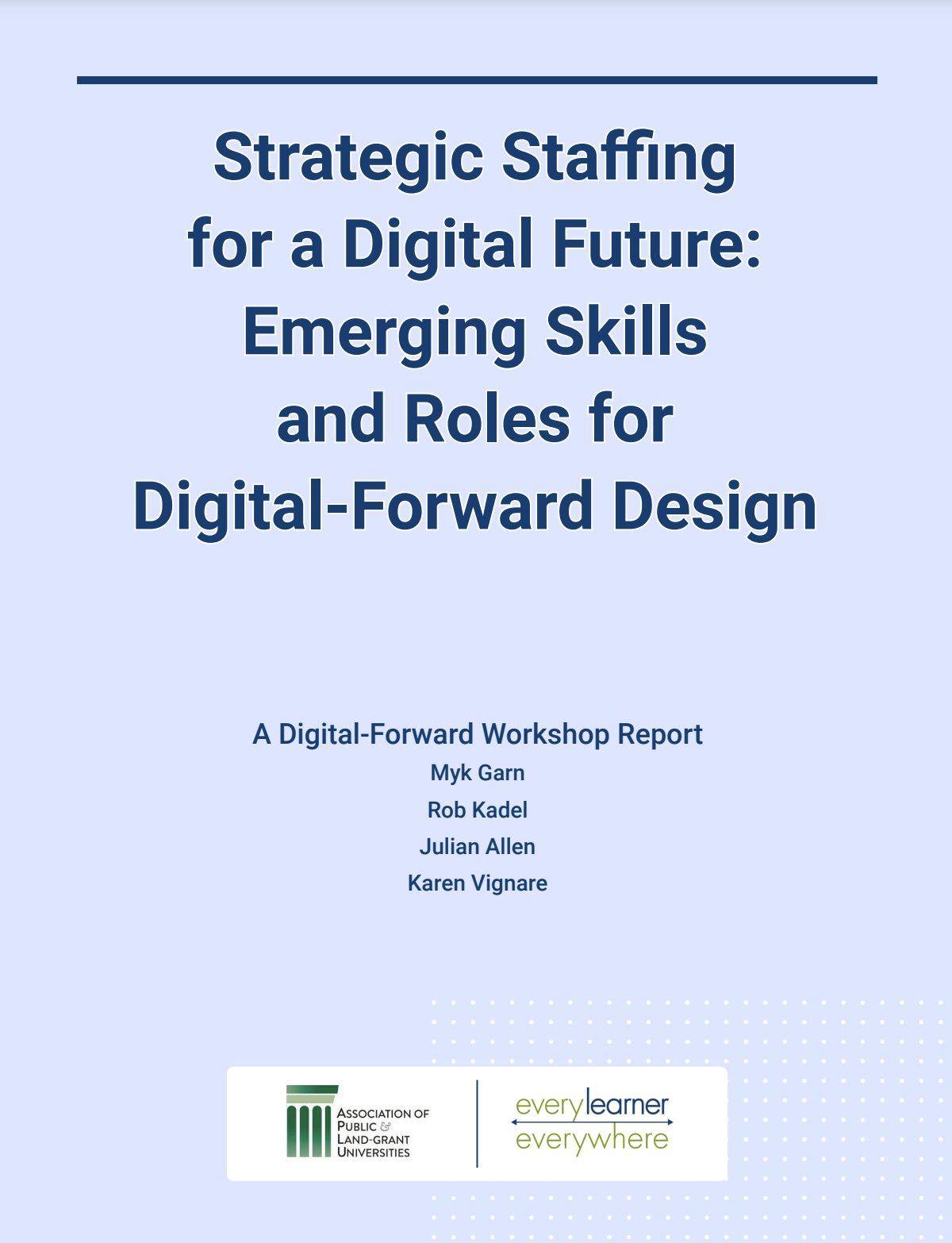
An overview of the APLU Winter 2021 Digital-Forward Skills and Roles Workshop, which identified and described emergent digital-forward skill sets and roles.
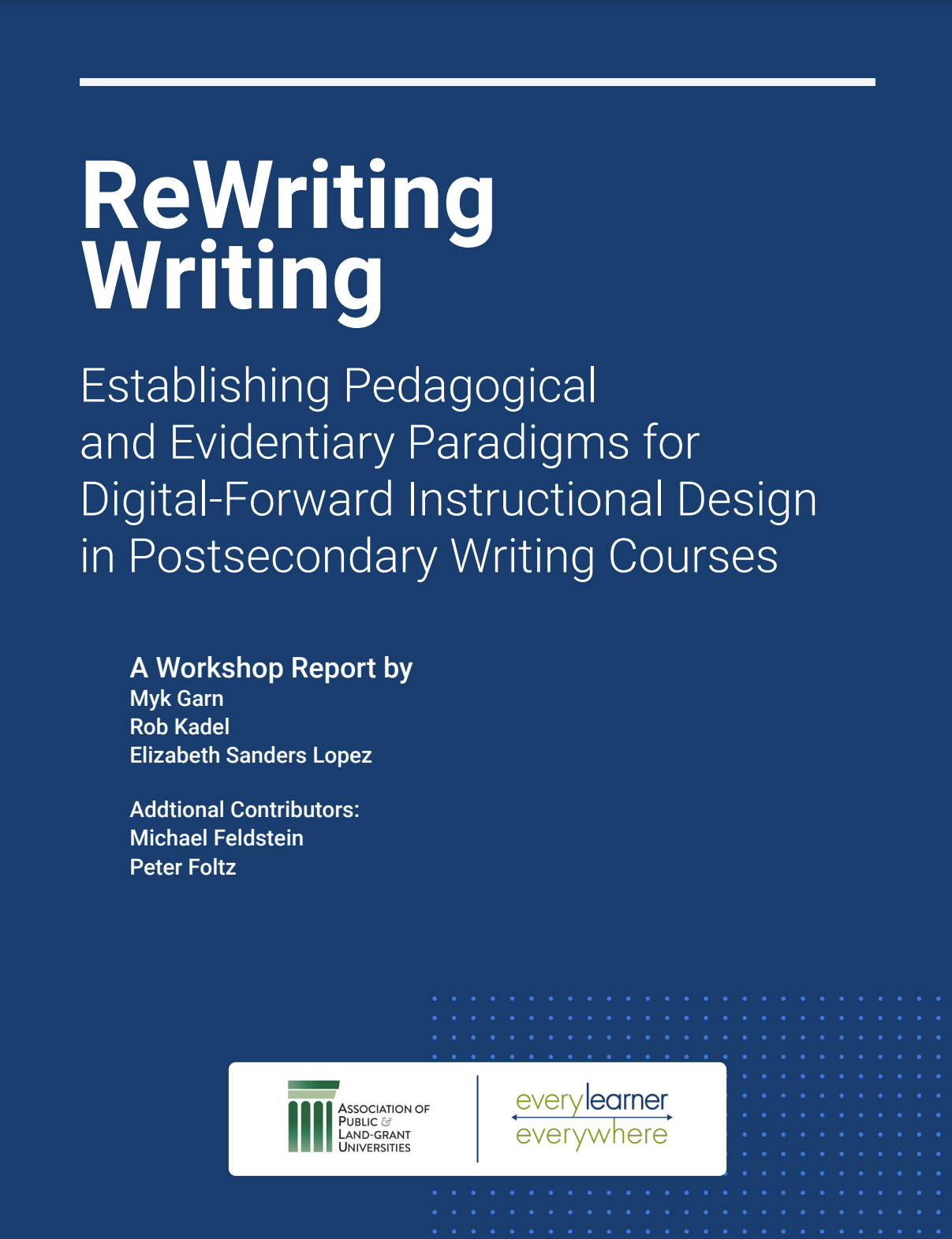
This report summarizes the work of the Re-Writing Writing workshop where we invited a diverse range of digital learning experts to bring their distributed knowledge of digital tools to a four-session virtual workshop.
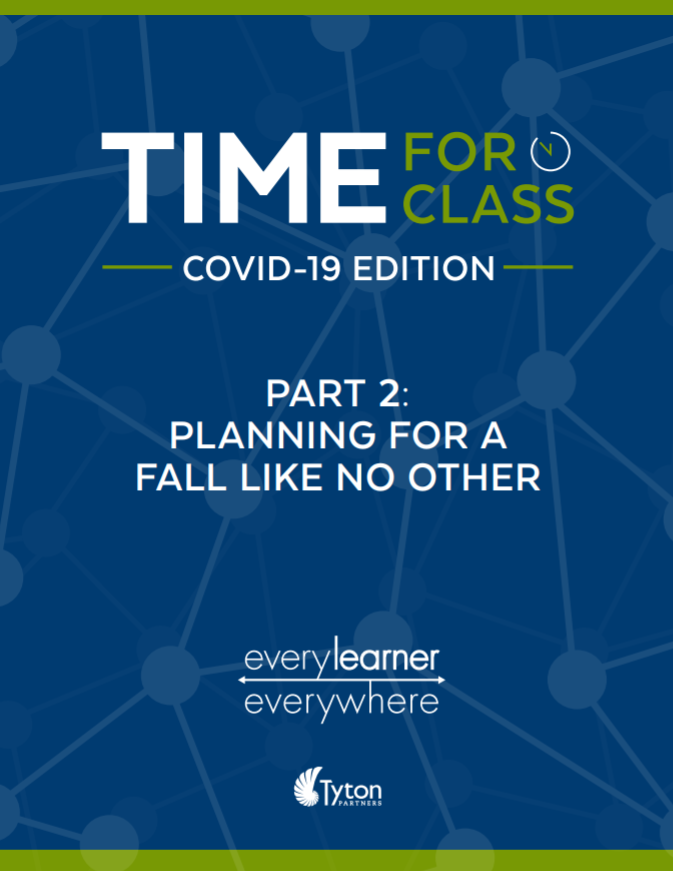
This is the second report in an ongoing series designed to understand the ongoing impact of the COVID-19 pandemic on teaching and learning in higher ed.
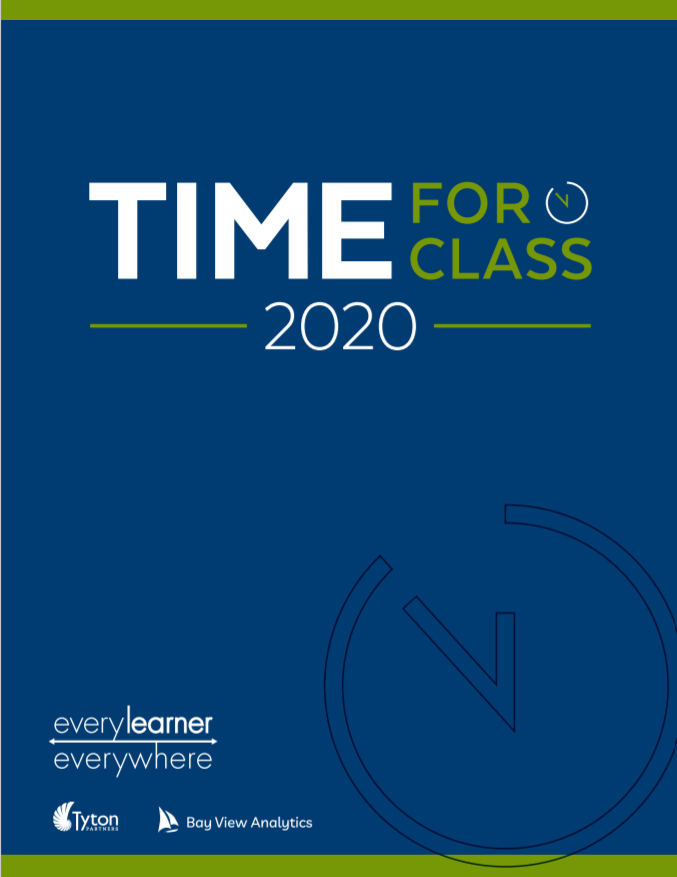
This survey is designed to help higher education stakeholders gain an understanding of digital learning tools for increasing affordability and accessibility for students.
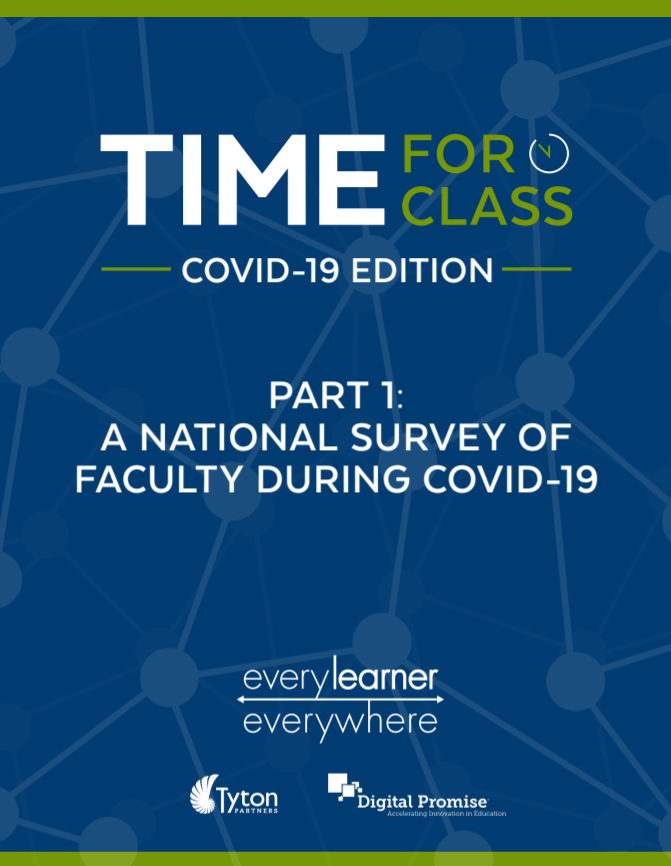
The report presents first results from an ongoing series of surveys and focus groups with faculty designed to understand the impact of COVID-19 on higher ed.
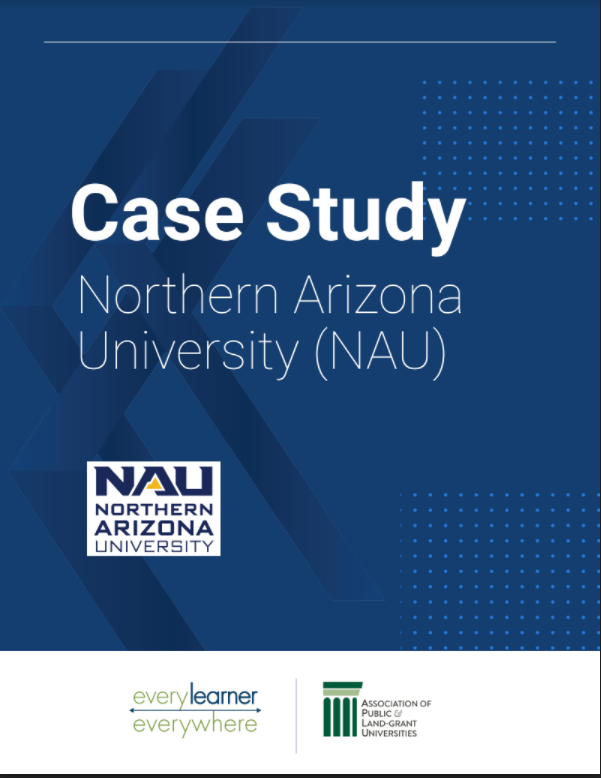
This case study from Northern Arizona University demonstrates the increase in student success that can result from the implementation of adaptive courseware.
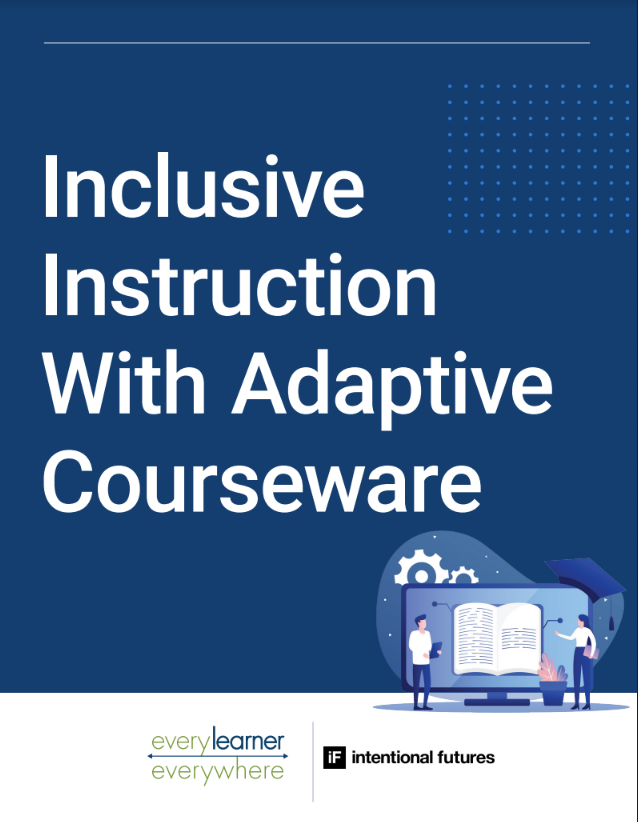
A summary of approaches to developing and evaluating accessible and inclusive courseware
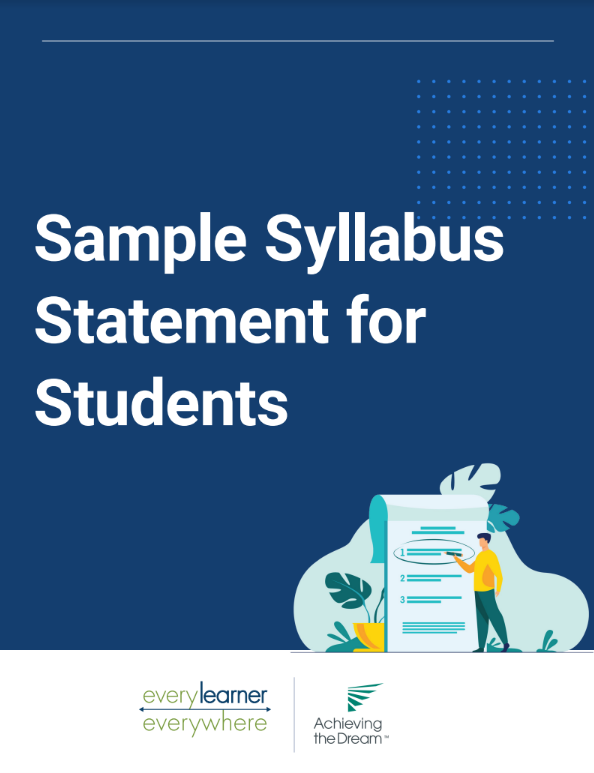
This is a sample syllabus statement to introduce the adaptive courseware component of your course to students.
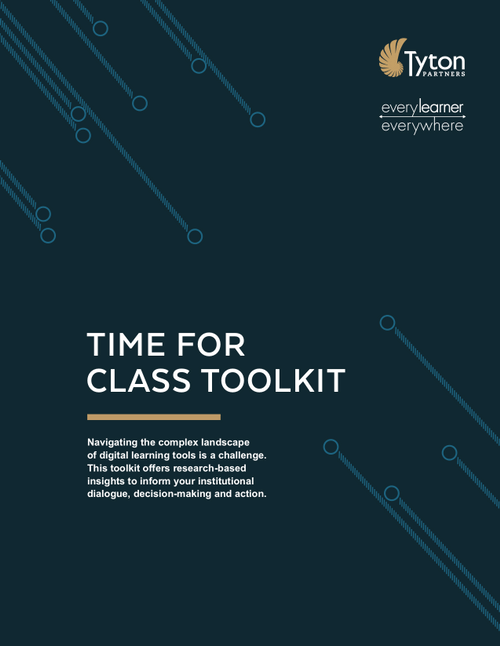
The Time for Class 2019 Toolkit is a set of research-based action briefs and tools designed to support institutional dialogue, decision-making and action.

















